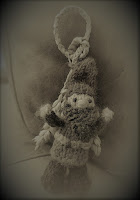Jethro Tull and Agriculture 4.0
Jethro Tull Agricultural Pioneer [1] Oil on canvas mural by Alfred Reginald Thomson, RA, 1955, commisioned by the Science Museum, London, showing the agricultural pioneer, Jethro Tull (1674-1741), demonstrating his most significant invention, the seed-drill. © Science Museum / Science & Society Picture Library As we begin a new decade maybe it is time to reflect once more. I sense a change in the agricultural field, if you pardon the pun. For three centuries or more agricultural improvements have been driven by ‘Productivity and Output’ – the world needed feeding, land is finite, improved output was the way forward. In a new paper by Klerkx, L., Rose, D. [2] their abstract outlines this change “Previous agricultural revolutions were, of course, radical at the time – the first seeing hunter-gatherers move towards settled agriculture (Agriculture 1.0), the second characterised by innovation as part of the British Agricultural Revolution which saw...

